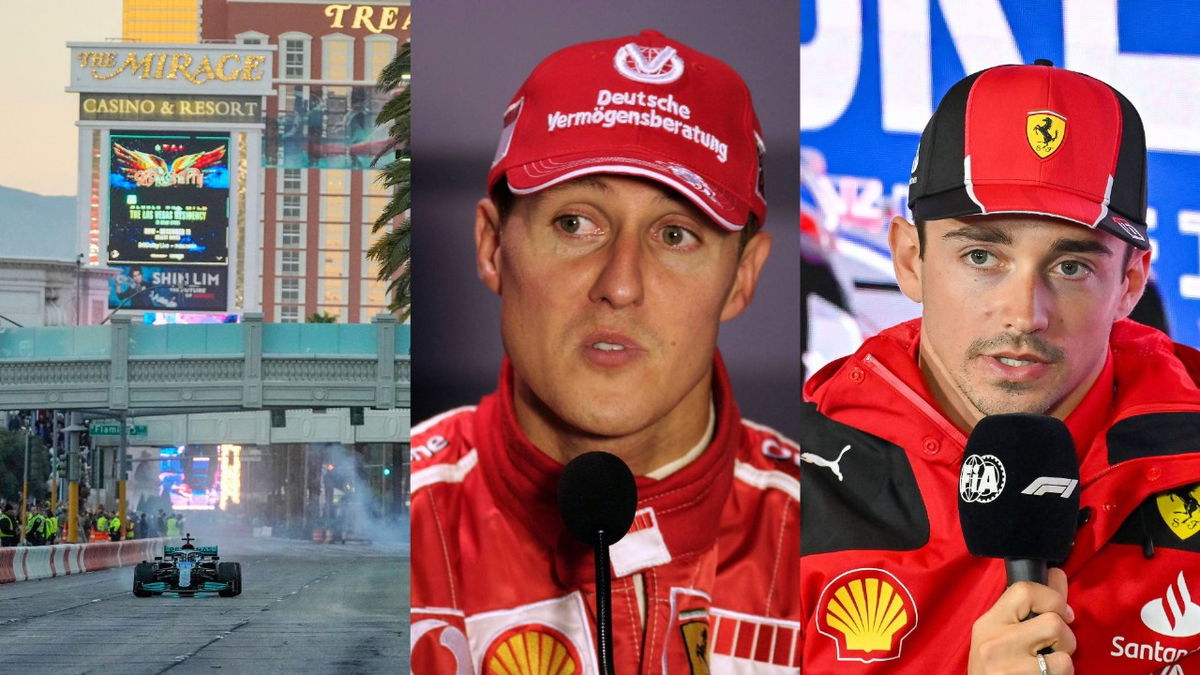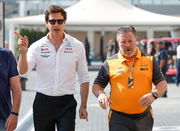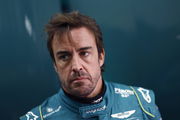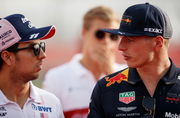
Imago
(L) Las Vegas GP, (Middle) Michael Schumacher, (Right) Charles Leclerc | Image Courtsey: Imago

Imago
(L) Las Vegas GP, (Middle) Michael Schumacher, (Right) Charles Leclerc | Image Courtsey: Imago
Formula 1’s recent $1.3 billion expansion with the addition of Las Vegas GP has left fans divided and concerned over the future of the iconic Italian races. The Emilia Romagna Grand Prix at Imola and the Italian Grand Prix at Monza hold a prestigious place in the hearts of motorsport enthusiasts, not least because of their connection to the legacy of the Scuderia Ferrari. With both contracts running only until 2025 and the growing global competition for race hosting rights, the likelihood of Italy maintaining two Grand Prix appears to be dwindling.
Watch What’s Trending Now!
Speaking ahead of the Italian GP, Stefano Domenicali, F1 CEO, addressed the concerns over the future of Formula 1 in Italy. His comments about evaluating whether Italy can sustain two Grand Prix or may need to focus on just one have been met with discontent by fans who consider both races integral to the season.
🚨 It is unlikely that both Monza and Imola will be on the F1 calendar together beyond 2025
Domenicali plans to make the decision soon on whether Italy will continue to have 2 races each year
[@Motorsport] #F1 #ItalianGP pic.twitter.com/LhOJk7T4ha— RBR Daily (@RBR_Daily) September 2, 2023
ADVERTISEMENT
Domenicali’s appreciation for Imola’s commitment during the challenging times of the COVID-19 pandemic provided a ray of hope. Imola’s readiness to step up in those testing times demonstrated its value to the F1 calendar. Monza, the temple of speed, known for its rich history and passionate Ferrari ‘Tifosi’, is set to undergo renovations later this year. This move has been seen in a positive light, ensuring that the historic track keeps pace with the demands and expectations of the modern F1 era. Upgrades such as expanded tunnels, improved hospitality areas, and enhanced grandstands are on the cards.
However, Domenicali also emphasized the importance of the spectator experience. The recent Dutch GP, with its impeccable audience entertainment, set a benchmark. Domenicali praised venues like Zandvoort for their efforts to improve the fan experience, noting the significant investments some countries have made in infrastructure.
ADVERTISEMENT
As F1 walks the tightrope between business expansion and respecting tradition, the next few years promise to be crucial. Whether the European classics like Imola, Monza, Spa-Francorchamps, and Zandvoort can coexist with the new destinations without having to rotate remains the burning question. One thing is for sure: the fans will be watching keenly.
ADVERTISEMENT
Fans are neither taking lightly the idea of canceling the Italian GP nor showing love to the Las Vegas GP
The prospect of canceling or rotating the revered Italian Grand Prix has struck a nerve with the global fan community. For many, Monza isn’t just another circuit; it’s the very heartbeat of Formula 1. Its storied straights and iconic turns have been the backdrop of some of F1’s most defining moments, and its connection to Ferrari’s illustrious history is something that can’t merely be replaced or replicated elsewhere.
Conversely, the announcement of a Grand Prix in Las Vegas, a city more commonly associated with glittering casinos and high-octane nightlife than with motorsports heritage, has garnered mixed reactions. Some see it as an exciting new venture, but a significant chunk of the fanbase feels that the push towards newer circuits in non-traditional F1 territories is at the expense of the sport’s rich history.
Top Stories
Who Are Lando Norris’s Parents? Meet Adam Norris and Cisca Wauman

Little Fan Makes “Super Important” Charles Leclerc Wish With a Promise to See Him at the Italian GP

Zak Brown & McLaren Possibly in Deep Trouble as Mercedes Cuts Engine Supply for F1 2026

“There Is a Ban on Overtaking at Aston Martin”: Fernando Alonso’s Lack of Aggression Against Lance Stroll Induces Major Criticism

Amid Recent Sergio Perez Row, Max Verstappen Was Once Hailed for Disobeying Team Orders

this is actually crazy bc i swear these gps are some of the most affordable to attend (ticket price wise) i swear everything domenicali is a money grab https://t.co/97EssE66fo
— darcy 🦭☾ (@omgdarcy) September 2, 2023
ADVERTISEMENT
Here are some more fan reactions from Twitter. And the discontent is real this time.
Think I would prefer Monza tbh.
Shame to be getting rid of one but as long as they don’t replace it with another stupid street track then that’s fine.
— FwdSlashF1 (@FwdSlashF1) September 2, 2023
but three races in the us (miami and las vegas are shit) is okay 🤙🏻
— dany ¹⁶ (@beatlebum_) September 2, 2023
ADVERTISEMENT
Apart from COTA the rest in the states are rubbish. All fart no poo.
— @lola2016320 (@lola2016320) September 2, 2023
we literally have 3 races in the us that no one’s asked for of which 2 are absolute shit tracks but lord forbid we have 2 races in italy on actual race tracks!!!! what is this man’s actual problem?? https://t.co/kpJCZP2BIa
— anika (@scuderrari) September 2, 2023
it’s actually ridiculous if they cancel one of the two races in italy then they should cancel two of the THREE races in the US like cmon bffr https://t.co/1H74YXamiV
— notlulu (@lulunotlu) September 2, 2023
ADVERTISEMENT
las vegas is so shit why are we keeping that but getting rid of them https://t.co/H8OIPtlLI7
— erin 🩵🏆🏆🏆 (@erinlils15) September 2, 2023
girl it should be the us races that have to be questioned like what are they on https://t.co/RCcFnArY6m
— denise 🧸 (@VERSAlNZ) September 2, 2023
but the usa can have 500 races? omg https://t.co/WkAxDLCHvv
— can (@rosbergcore) September 2, 2023
ADVERTISEMENT
Formula 1, at its core, is an intricate blend of speed, technology, and heritage. The recent endeavors to globalize the sport, while promising new audiences and opportunities, have also stirred feelings of apprehension among the long-standing fans. The potential sidelining of circuits with rich histories like Monza and Imola in favor of newer venues like Las Vegas poses challenging questions about the direction F1 is headed in.
Watch This Story | The Best F1-Themed Movies
While growth and adaptation are essential for any sport’s longevity, they should not come at the cost of alienating its most ardent supporters or erasing its storied past. It is a delicate balance, and as F1 charts its course through this rapidly evolving landscape, it must ensure that the heartbeat of the sport–its fans and its legacy–remains intact. The coming seasons will not only decide the fate of iconic tracks but will also shape the narrative of F1’s commitment to its heritage.
ADVERTISEMENT
ADVERTISEMENT
ADVERTISEMENT
ADVERTISEMENT

